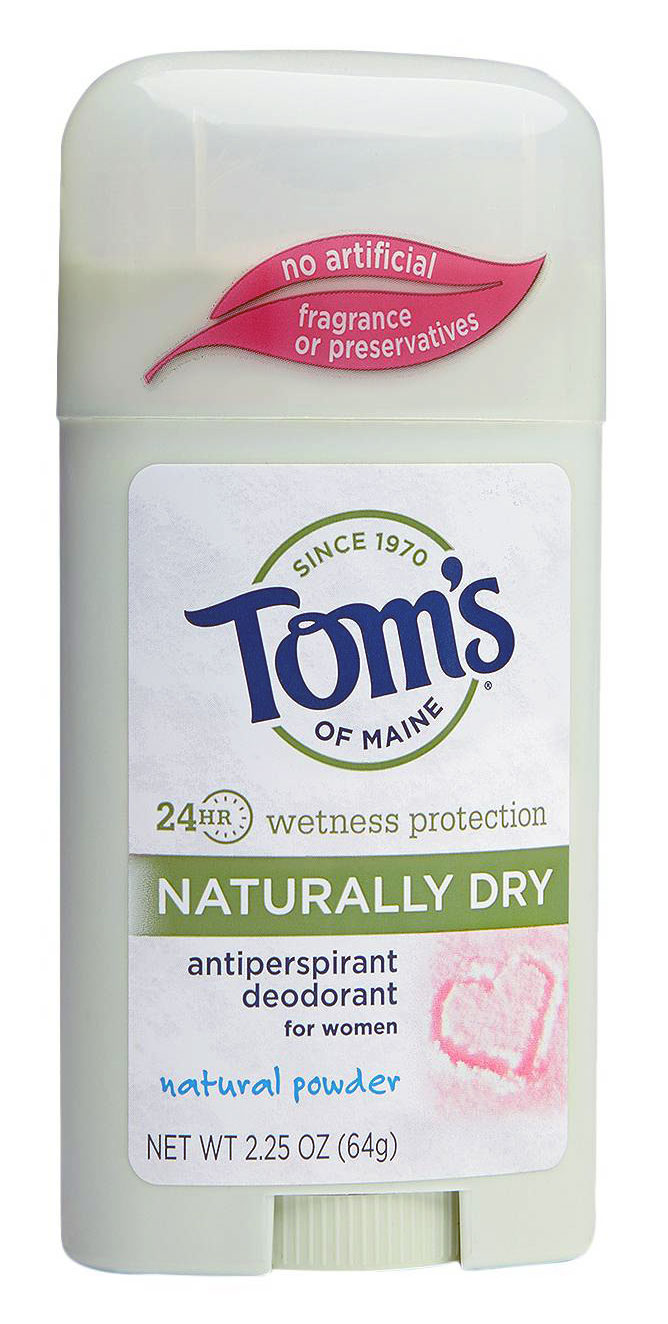Delaying 'Natural' Personal Care Claims Litigation Until FDA Acts Comes Naturally – Colgate
This article was originally published in The Rose Sheet
Executive Summary
Colgate asks federal courts in New York and California to stay class action litigation over “natural” claims for Tom’s of Maine until FDA rulemaking or guidance. Colgate says the cases are ripe for application of “primary jurisdiction doctrine” giving deference to FDA.
Colgate-Palmolive Co. is asking federal courts in California and New York to delay two class action complaints against “natural” claims for its Tom’s of Maine personal care products, including toothpastes, until FDA weighs in on using the term in claims.
In separate motions filed June 2 in US district courts for the Southern District of California and for the Southern District of New York, Colgate says the complaints should be stayed action under "primary jurisdiction doctrine," judicial deference to a regulatory agency with specific oversight of a relevant issue.
A stay “will allow this court to benefit from the FDA’s guidance on a key issue in this litigation as well as ensure uniformity and consistency in an area Congress has entrusted to the FDA to regulate,” according to the motions filed in the California and New Yorkcourts.
Courts have stayed cases for food companies embroiled in litigation over “naturals” claims, pending FDA’s completion of an initiative launched in 2015 to consider comments on whether it should formally define the term for use in food products, including dietary supplements. The comment period ended in May 2016 and the agency reported receiving more than 7,600 comments. (Also see "FDA Seeks Comment On 'Natural' Food Labeling; Cosmetics Not Mentioned" - HBW Insight, 11 Nov, 2015.)
However, courts have not granted requests to stay litigation against firms that market toothpastes and other personal care items such soaps and antiperspirants, which are targeted in the complaints against Colgate.
Settlements Follow Stay Denials
Colgate settled a similar case in a Florida federal court in January 2016, agreeing to $4.5m in payments to consumers and changes to its Tom’s of Maine toothpaste labeling and website claims, though the firm admitted no wrongdoing. (Also see "'Natural' Oral Care Settlements Signal Risk For Ingredients Despite Regulatory Void" - HBW Insight, 22 Feb, 2016.)
Johnson & Johnson failed in 2014 with its federal preemption motion in a similar case involving naturals claims for its Aveeno Active Naturals product line, and recently agreed to a $6.75m settlement. (Also see "J&J Agrees To $6.75M Aveeno Active Naturals Class Settlement" - HBW Insight, 30 May, 2017.)
Class Starts With September 2015 Purchases
The New York complaint filed in October and refiled in December alleges the plaintiffs purchased Tom’s of Maine products because they were deceived into believing the brand’s line “did not contain unnatural ingredients.”
The plaintiffs assert causes of action for breach of express warranty and violations of consumer protection laws in states where they bought the products – California, Florida and New York – on behalf of a nationwide class of consumers who purchased the Tom’s of Maine products since Sept. 25, 2015, the cutoff date in the January 2016 class-action settlement concerning Tom's of Maine product claims.
In the California complaint filed in November, a single consumer alleges Colgate marketed products as “natural,” “naturally sourced,” “naturally derived” and similar claims on packaging, though the products contain a “laundry list” of synthetic and artificial ingredients. The suit, claiming false advertising, violations of California business laws and breach of express warranty, was filed on behalf of US residents who purchased Tom’s of Maine products since the September 2015 date as well as a sub-class of California residents.
The decision on J&J's motion “was based, at least in part, on FDA’s statement that FDA was not planning to address natural in the foreseeable future,” said Riette Van Laack, an attorney with Hyman, Phelps & McNamara PC in Washington.
"“Since then, FDA’s action indicates that the Agency has changed its position and may develop a regulation (or provide guidance) on term natural. Colgate may stand a better chance,” Van Laack, whose practice focuses on food and dietary supplement labeling, said in an email.
Still, odds likely are against the firm.
Ivan Wasserman, an advertising law attorney and partner at the Washington Office of Amin Talati Upadhye LLP, previously pointed out that asking courts to apply FDA’s foods review to litigation over personal care claims is a challenge, considering that FDA’s notice for comments on its “natural” policy in the food space “expressly excluded drugs and cosmetics.”
Additionally, the Federal Trade Commission’s enforcement in 2016 against fraudulent “all natural” claims by sunscreen and personal care products likely is fodder for plaintiffs’ attorneys eyeing such class actions. (Also see "FTC Finalizes ‘All-Natural’ Personal-Care Settlements, Offers A Word On ‘Natural’" - HBW Insight, 13 Jul, 2016.)
Van Laack said the Trump administration's hold on adding federal regulations makes it difficult to predict when FDA might act on natural labeling, though any action soon is unlikely.
FDA Review Preceded Complaints
Colgate argues that before the plaintiffs filed their complaints, FDA opened it request for information and comments on using the term in product claims in response to a proliferation of lawsuits regarding “natural” labeling.
“Following the FDA’s announcement, courts have stayed ‘natural’ cases based upon primary jurisdiction doctrine, and deferred to the FDA on the ‘natural’ issue that Congress has placed within the FDA’s regulatory authority,” Colgate told the New York court in its motion that mirrored its filing to the California court.

Colgate seeks to stay class action litigation targeting natural claims for Tom's of Maine antiperspirants and other personal care products until FDA decides whether to define use of the term in claims for food products.
Colgate says deferral to FDA would further “uniformity and consistency in the regulation of areas entrusted to federal agencies” and “better informed and uniform legal rulings by allowing courts to take advantage of an agency’s specialized knowledge, expertise and central position within the regulatory regime.”
To support is stance, Colgate points to the factors the US Court of Appeals for the Second Circuit stated in determining when to apply the primary jurisdiction doctrine.
The firm contends the factor of whether a substantial danger of inconsistent rulings exists is “the most critical.” It applies to the two complaints because separate courts could make differing determinations on natural labeling.
“Allowing individual courts to make judicial determinations as to the appropriate definition for ‘natural’ would result in differing decisions and requirements – on a case-by-case and product-by-product basis – that would make uniform labels impossible,” the firm says.
It argues that "two nearly identical complaints are pending" in other jurisdictions, causing "the very real potential for inconsistent judicial rulings if the cases are not stayed. Discordant rulings, moreover, could force Tom’s to print different labels on a jurisdiction-by-jurisdiction basis, or even worse, subject it to conflicting standards in states covered by plaintiffs’ claims.”
Additionally, another factor in primary jurisdiction decisions – whether a previous application concerning the relevant question has been made to an agency – is checked off by FDA's ongoing review of whether food products may be labeled as natural, the firm contends.
“While the FDA’s review covers ‘natural’ labeling in the context of food products, there is no indication that the FDA’s pending guidance would not also apply to personal care and cosmetics products,” Colgate says.
The factors in determining primary jurisdiction also include whether the question is within the conventional experience of judges or it involves technical or policy considerations within the agency’s field of expertise. This “easily” applies to the complaints, says Colgate.
Courts "have recognized that determining what qualifies as ‘natural’ does not fall within the typical experience or expertise of judges. Determining what qualifies as ‘natural’ is a decision uniquely within the expertise of the agency, not the courts," it argues.
Still another factor, whether a question is within an agency’s discretion, applies. “Not only is the decision regarding what constitutes a ‘natural’ product uniquely within the expertise of the FDA, but it also has authority over the issues of product labeling standards. Even before the FDA announced its intent to delve into these issues, courts held that the use of the term ‘natural’ fell within the FDA’s discretion,” Colgate says.
